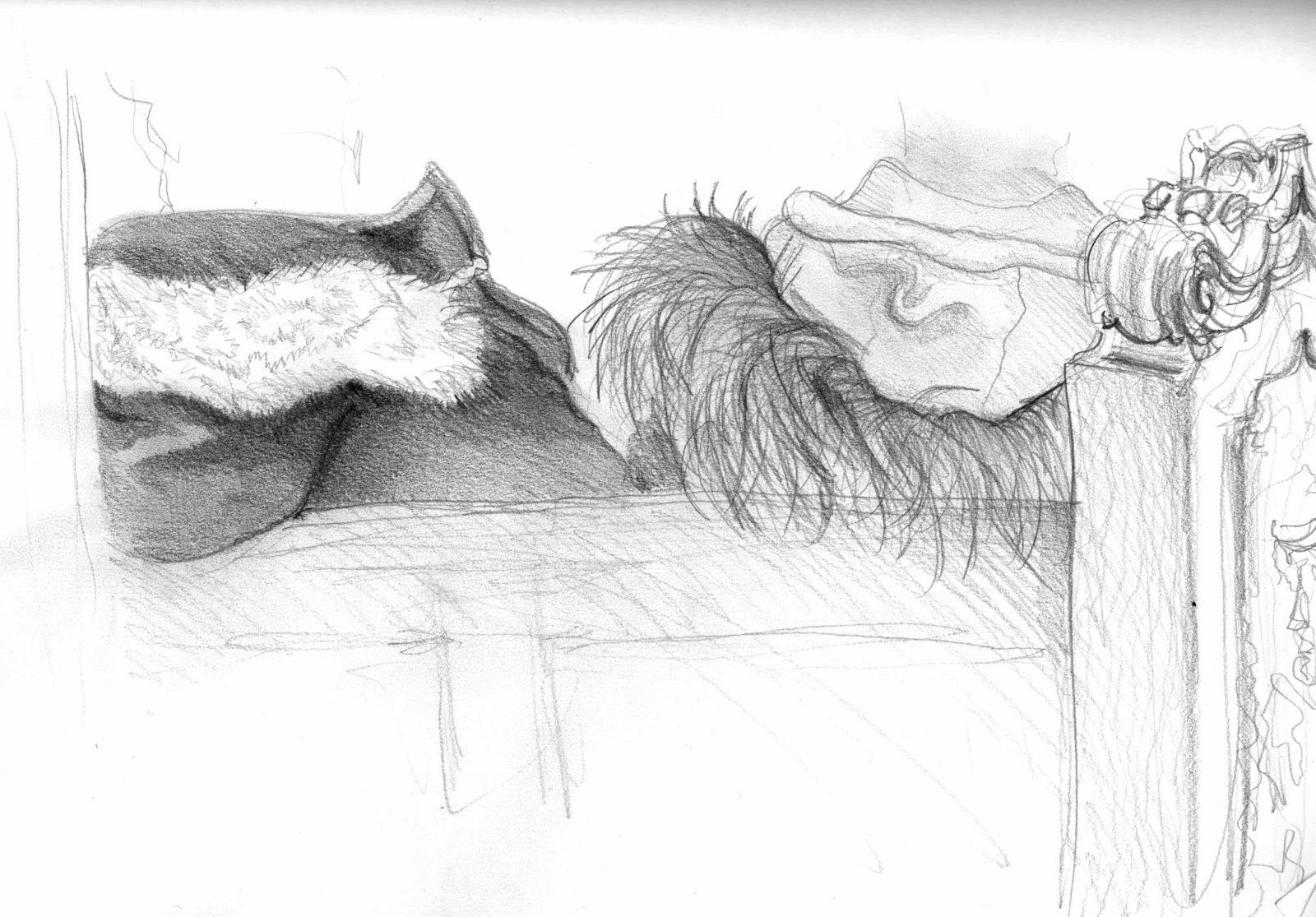#CCRC20: Is false hope better than no hope? The ethics of innocence work

Sketch by Isobel Williams, R v Jogee, www.isobelwilliams.blogspot.co.uk
Craig Fahey and Bethan Hill-Howells, team leaders on Cardiff Law School Innocence Project discuss the ethics of innocence. Published July 11, 2017.
A criticism that could be levelled at innocence projects is that we offer false hope to desperate clients; that when we accept a case knowing there is a slim prospect of getting past the CCRC, we act unethically. If we know that the chances of success are between slim and nil, then should we simply tell that to the people seeking our help, and decline to help?
The first point to make on this is that if clients are desperate when they first approach us, there can be no clearer indictment of our failing justice system. The people that approach us have exhausted the few and limited options available to them, and they have been left abandoned by the system from the moment the jury returned a guilty verdict. A mere matter of days or weeks to establish guilt; a lifetime to try to prove innocence. We know that to overturn a conviction it has to be shown to be unsafe, and people don’t actually have to ‘prove’ their innocence. But the reality is that it is often almost impossible and most people will get nowhere in their attempts to clear their names.
For example, take a case that has been with the Cardiff Law School Innocence project, in various ways, for many years – Case A. This case has suffered repeated CCRC rejections, primarily because we do not have access to the evidence we would need for our pro bono forensic science experts to investigate further. We have no rights to this evidence. There are those that would argue that to continue work on such a case would be unethical, as it just encourages false hope.
In situations like this, we ask ourselves – what is the more ethically wrong act? Can we be justified in turning our backs on a client where we have serious concerns about the safety of their conviction, purely because the system is too heavily weighed against them? The situation has been likened to giving palliative care. Although palliative care is delivered to terminally ill patients without a serious prospect of making a breakthrough, isn’t it still better to deliver that palliative care, than to offer no care at all? Similarly for us, is it not more ethical for us to provide help to desperate clients, to let them know that someone is still working on their case, rather than abandoning them like the rest of the system has?
This is a problem we encounter on the project quite often. We often review cases where, in our view, there are clear signs of innocence: suspicions of planted evidence in Case A, for example. Or we have cases referred to as ‘no evidence’ cases. Case B, for example, has recently come to the project. It is a historical sex abuse claim with no physical evidence, and very little supporting evidence used to convict a vulnerable defendant. In these types of cases, there is very little evidence for us to work from. But we should continue on these cases, in spite of the low chance of an overturned conviction, if there is something productive that might be done. Not doing so would abandon these clients like everyone else has; not doing so would be to ignore the fact that these clients still insist they are innocent (and they may well be), and that whilst they continue to do so, they have a right to be represented by someone.
A further problem that we face concerns whether the client is telling us the truth. It can come to a point where students feel that they can no longer ethically work on a case where the client is only telling a partial truth or perhaps omitting certain facts. How far should a project continue to work on a case like this? It is relatively easy to have a one-strike rule that says we will drop a case if someone lies to us. But it isn’t clear cut because most of the time we have no way of proving that the client is lying. It would be ethically difficult to accuse a person of lying without evidence. So often we have to work with what we have and make a decision on less than perfect evidence.
We then have to balance the interests of the client (who we may feel is holding back certain information) with that of the project. If we continue to work on a case where we suspect guilt we are taking vital time and energy away from a case that has more signs of innocence. Is it morally right to work on a case with some ‘warning signs’? What about the competing interests of justice and the victims? In all honesty, we don’t have the answers. We cannot believe everyone is always innocent or guilty. We must weigh up the evidence in front of us, without being naive.
Whilst some may criticise innocence projects and their inevitable delays, we feel that we have an ethical duty to investigate cases where aspects of a case concern us. Not everyone who has been convicted is guilty, and the same can be said for those who claim innocence. Our rule is to try to be fair, reasonable and ethical at all times, and to bear in mind that our approach is often wider that of practising lawyers who have to work within narrow legal aid restrictions. Also – when people ask for our help, we are always frank with them about the size and nature of the hurdles they face. Yet, still, people want to try anything to get justice. If we were in their position, would we do the same? We think so.






